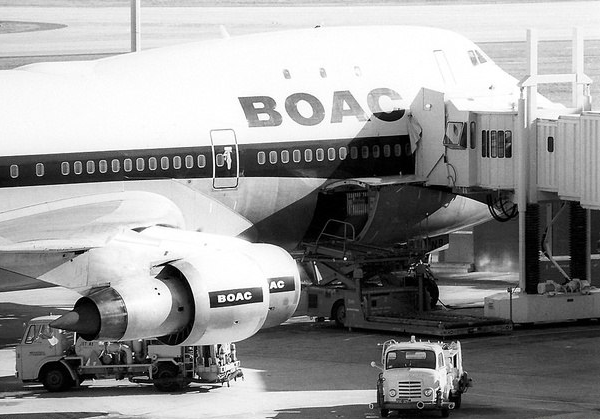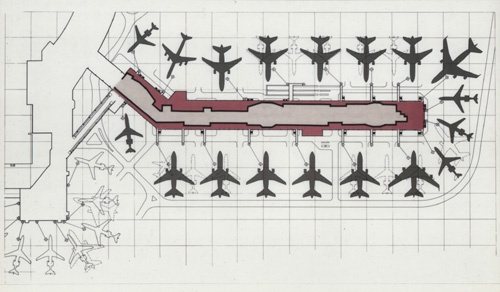Have you ever noticed that if you have a reservation on a commercial airline, you almost always board and disembark on the plane’s left side? Have you ever wondered why that happens? I did. I mean, a plane isn’t like a horse (horses are trained for you to mount and dismount from their left side and if you do either on the right side, they freak out), so why only the left side? Here’s what I found out about it.
There doesn’t seem to be an “airplane rule book” that says why passengers board and disembark on a plane’s left side. But it turns out there are quite a few hypotheses, all dealing with logistics and safety:
So the pilot can see
A plane’s pilot needs to precisely align the plane door with the terminal to avoid the risk of the plane’s wing hitting the building. Therefore they usually sit on the left side of the cockpit, so it’s easier for them to see. Hence, the plane door on the left side is used.
Where the plane gets its fuel
The grounds crew fuels the aircraft on the right side. If the passengers are on the left side, it makes the grounds crew’s job easier, especially in cases where they use stairs instead of a jetway to board and disembark.
Where Luggage & Cargo Are Loaded
Just like fueling, baggage and cargo are loaded and unloaded on the right side. The last thing we want is for passengers to see their luggage as it’s being unloaded – you KNOW someone is going to want to take their bags RIGHT NOW.
Where cleaning & catering vehicles park
Just like all the other “work” vehicles are on the right-hand side, so are the trucks that are used for cleaning and catering.
It’s a Tradition from Ships
Passengers traditionally embark and disembark from the port (left) side of a ship. As planes became commercialized, they followed suit.
***The exceptions***
By the way, it’s not always the case 100% of the time (just almost always LOL). Here are some rare exceptions to the rule:
A while back, IndiGo introduced a “Three Point Disembarkation System,” where they have 2 exit ramps in the front, and 1 in the back. The second of the 2 front ramps was on right side of the plane. Here’s a short video of the process in action, from CN Traveller. It’s said to save 2 to 5 minutes.
BOAC stood for British Overseas Airways Corporation and was the British state-owned airline created in 1939 by the merger of Imperial Airways and British Airways Ltd. It stayed in business until 1974 and loaded/unloaded passengers on the right side of the plane.

The old Denver Stapleton Airport (which closed in 1995) also had gates that allowed passenger boarding on the right side. Look at the second from the right gate on the top row:

No word on how often that gate was used.
Want to comment on this post? Great! Read this first to help ensure it gets approved.
Want to sponsor a post, write something for Your Mileage May Vary, or put ads on our site? Click here for more info.
Like this post? Please share it! We have plenty more just like it and would love it if you decided to hang around and sign up to get emailed notifications of when we post.
Whether you’ve read our articles before or this is the first time you’re stopping by, we’re really glad you’re here and hope you come back to visit again!
This post first appeared on Your Mileage May Vary

4 comments
I am SO glad that this mystery has been solved – you have no idea how many sleepless nights I have had while trying to make sense of this.
And I, in turn, am EXTRAORDINARILY thrilled to have been able to help you with that. Sleep well tonight, travel friend!
I have seen prewar pictures of American DC-3s and Ford tri-motors boarding on the right side, but I believe Pan Am clippers boarded on the left. I can’t recall any after WW II that boarded on the right.
I’m AMAZED that you haven’t got pictures of passengers climbing the tail stairs 🙂